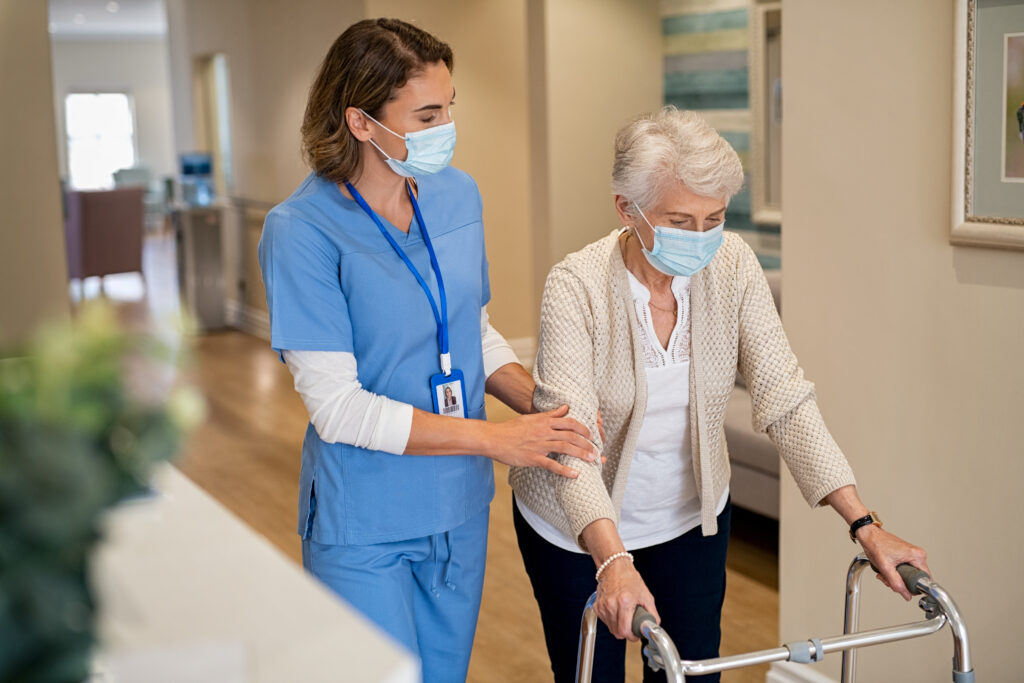Skilled Nursing in Cleveland, Ohio: Search Near You, How to Pay, Licensing, Local Resources, and Questions to Ask
Cleveland, Ohio, is a lakeside city offering a vibrant mix of cultural attractions, healthcare access, and senior-friendly neighborhoods—making it an ideal place for retirement. Skilled nursing in Cleveland provides 24-hour medical care and rehabilitation services for older adults recovering from surgery, managing chronic conditions, or needing ongoing clinical support. Ohio ranks in the top 30 states for assisted living, reflecting its commitment to maintaining quality care standards for seniors.
Skilled Nursing Facility Communities near Cleveland, Ohio
Suburban Healthcare And Rehabilitation
North Randall, OH 44128
O'neill Healthcare Bay Village
Bay Village, OH 44140
Crocker Pointe Health And Rehabilitation
Westlake, OH 44145
North Park Care Center
Brook Park, OH 44142
Eliza At Chagrin Falls
Chagrin Falls, OH 44023
Singleton Health Care Center
Cleveland, OH 44103
Manor Of Grande Village
Twinsburg, OH 44087
O'neill Healthcare North Olmsted
North Olmsted, OH 44070
Enniscourt Nursing Care
Lakewood, OH 44107
Jennings Hall
Garfield Heights, OH 44125

About Skilled Nursing in Cleveland, OH
In Cleveland, Ohio, skilled nursing is defined as round-the-clock medical care provided by licensed nurses and trained healthcare professionals in a certified facility. This level of care supports seniors with complex medical conditions, post-operative needs, or those requiring long-term supervision. Services include wound care, IV therapy, medication management, and vital sign monitoring, along with assistance with daily living tasks such as bathing, dressing, and mobility. Many skilled nursing facilities in Cleveland also offer rehabilitative therapies like physical, occupational, and speech therapy to help residents regain independence and improve overall well-being.
A skilled nursing facility is the building
Skilled nursing facilities offer 24-hour care and medical services, which include intermediate care and rebab and therapeutic care, all provided by licensed nurses and support professionals. Usually, skilled nursing is short-term acute care but may also offer long term care and intermediate care.
SNF, “skilled nursing facility” is the umbrella under which different care levels operate. “Nursing Home” is a common term used when referring to any/all senior living, although the term is a bit outdated.

Skilled nursing: Care that requires the skill of a nurse
Skilled Nursing is for seniors who may have planned surgeries or procedures (knee or hip replacement, etc.) and those individuals with acute or unplanned medical issues (Sepsis, cellulitis, UTI, etc). The oversight of a nurse may be required because care is not predictable and able to be preformed on a set schedule.
Levels of care offered in a skilled nursing facility
It is important to understand the differences between care services.
Rehabilitation and Therapy
- This is treatment for an injury, illness, or pains with the goal restoring function, including nursing and therapy services.
- The rehab plan is ordered by a physician. The services are provided by nurses and physical, occupational, and speech therapists.
Intermediate Care Facility (ICF)
- These are nursing facilities most suited for individuals who need 24-hour medical oversight in a well-structured setting.
- Often times, residents share a room and they are encouraged to bring personal items to create a more home-like environment.
Long-term Care
- Care provided by different caregivers in different settings.
- Assists with activities of daily living (ADLs).
- Care is not scheduled or predictable.
Examples of care provided at a Skilled Nursing Facility include:
- Skilled Nursing offers 24-hour skilled nursing care and medical services administered by licensed nurses and support professionals.
- This is the highest level of care provided that is not a hospitalization.
- A physician oversees the care of the individual.
- Trained staff assist with activities of daily living like bathing, dressing, feeding, using the bathroom and getting in and out of bed.
- Physical, occupational, speech, and respiratory therapy.
- Regular monitoring of heart rate, blood pressure, or blood sugar.
- IV therapy
- Wound and post-surgery care.
- Injected medications.
Considerations when looking for Senior housing in Cleveland, OH
There are 50 Skilled Nursing facilities in Cleveland, Ohio. The estimated population of Cleveland is 362,656 with 15% of that number being those ages 65 and older. In Cleveland, the summers are warm, humid, and partly cloudy and the winters are freezing, snowy, windy, and mostly cloudy. Over the course of the year, the temperature typically varies from 22°F to 81°F and is rarely below 7°F or above 89°F.
Cities near Cleveland, OH
- Lakewood, OH – 7 miles west
- Euclid, OH – 10 miles northeast
- Parma, OH – 10 miles southwest
- Brooklyn, OH – 11 miles southwest
- East Cleveland, OH – 12 miles northeast
Pricing and How to Pay for Skilled Nursing
Paying for senior care depends on several factors. On average, residents can expect to pay $9,429 per Month for Skilled Nursing services. These fees encompass personalized care, engaging activities, and comfortable accommodations, ensuring a fulfilling retirement experience. Keep in mind these costs may fluctuate depending on factors such as location and facility amenities.

Paying for Senior Living and Care will vary depending on a few factors. For instance, the level of care needed; the income and savings of the resident; the state and location of the community; or if the resident is a veteran. In the United States there are over 400 programs that may offer some monetary relief for senior care, but often the majority of costs are covered by private funds and family assistance. These funds come from our Federal, State, and Local Governments.
It is important to take your time when exploring payment and coverage options.
Private pay – YES:
- Many families pay for assisted living with private funds.
- Private pay can be a combination of retirement funds, personal savings, and pension payments.
- Family members may contribute funds to pay for assisted living or other senior housing and care.
Medicare -MAYBE:
Medicare will TYPICALLY cover Skilled Nursing (SNF) care ONLY under these factors:
- People 65 years and older and individuals with end stage renal disease are eligible for Medicare benefits, no matter their income.
- Coverage is meant for people in need of short-term care.
- The person has Medicare Part A, and has available days left in their benefit period. The person has a qualified hospital stay. (3 consecutive midnights or more)
- The individual must enter SNF within 30 days of leaving the hospital.
- The person’s doctor has ordered inpatient services at a skilled nursing facility.
- The individual must need and receive the skilled care daily. The care provided must be care that the person can only receive in a SNF.
- The person needs skilled services because of an ongoing condition or a new condition that started while in a SNF for treatment of an ongoing condition.
- The skilled services must be reasonable and necessary for the treatment of the condition.
- You must receive the care in a Medicare certified SNF.
Medicaid – MAYBE:
Medicaid can be a payer source if the patient needs both care and has a financial hardship based on the individual state criteria. Eligible participants include: low-income adults, elderly adults and people with disabilities. The program is funded jointly by each state and the federal government; and national guidelines are in place do decipher how states must spend Medicaid money, but with allowances toward the guidelines. Every state has their own individual Medicaid assistance program. Each state determines what levels of care will be covered by Medicaid, who is eligible, and how much the state will reimburse the care community.
- Skilled nursing falls under Medicaid’s Nursing Facility Services.
- People who are eligible for Medicaid must meet the state criteria for skilled nursing care.
- The state of residency must abide by federal law and regulations when setting their skilled nursing care requirements.
- The patient meets the state guidelines for income and asset limits.
If you are unsure whether you qualify for Medicaid, you should apply. You may be eligible depending on your household income, family size, age, disability and other factors.For a clearer understanding on coverage contact your State Health Insurance Assistance Program.
Long-term Care Insurance – MAYBE:
Long term care insurance is a great way to pay for assisted living, and planning ahead is important when considering how to pay for senior housing and care. Nearly 75% of people over the age of 65 will require long-term care services at some point, so naturally, buying into long-term care insurance when a person is in their 50s and 60s is the most common time to do so.
- Long-term care insurance helps cover the costs of chronic medical conditions.
- Individuals and couples with the ability to pay into long-term care insurance have the advantage of a head start in allocating funds for senior care.
Veteran Aid and Assistance – MAYBE:
This benefit is available to some military veterans and surviving spouses who live in an assisted living community and those who have in-home care.
- There are specific guidelines, but a veteran may qualify for as much as $2,050 each month.
- A veteran with a sick spouse may be eligible for $1,600 per month.
- If a veteran has passed, their surviving spouse can qualify for $1,300 per month.

Local Hospitals and Healthcare Providers in Cleveland, OH
- Cleveland Clinic Main Campus
Address: 9500 Euclid Ave., Cleveland, OH 44195
Phone: (216) 444-2200 - University Hospitals Cleveland Medical Center
Address: 11100 Euclid Ave., Cleveland, OH 44106
Phone: (216) 844-1000 - MetroHealth Main Campus Medical Center
Address: 2500 MetroHealth Dr., Cleveland, OH 44109
Phone: (216) 778-7800 - Louis Stokes Cleveland VA Medical Center
Address: 10701 East Blvd., Cleveland, OH 44106
Phone: (216) 791-3800 - Lutheran Hospital
Address: 1730 W 25th St., Cleveland, OH 44113
Phone: (216) 696-4300
Questions to ask a skilled nursing facility
- Is the facility licensed?
- Has the facility’s license ever been revoked?
- Is the facility Medicare/Medicaid certified?
- What types of insurance is accepted?
- Are all specific medical needs able to be met?
- What services are offered?
- What is the rate for basic care?
- Are any reviews available to be seen by the public?
- Are protocols in place to ensure healthy, balanced meals?
- What if an individual has specific dietary restrictions, can they be met at the facility?
Additional questions and inquiries to ask skilled nursing facilities
- What should a new resident (patient) bring with them?
- What is the difference between skilled nursing and assisted living?
- What happens in case of an emergency?
- Can the family pet visit the resident?
- What is the level of privacy?
- What are the available social activities?
- What is the hours for family visits?
- Can patients request special meals for dietary needs?
- Are skilled nursing facilities connected to hospitals?
- How big are the rooms?
- What are the training requirements of skilled nurses?
Resources and Links
Ohio Department of Aging The Ohio Department of Aging offers resources for older Ohioans, caregivers, and professionals in the aging network. Together, we can make Ohio the best state in the nation in which to grow older.
Ohio Elder Abuse Reporting Directory When calling the statewide APS referral line, one should be prepared to enter on the keypad the first 4 letters of the county where the suspected abuse occurred. Or stay on the line to speak to an operator. It will connect you the county’s APS.
Pro Seniors Provides Legal counsel and information for Ohioans age 60 and over, or calling on their behalf.
Ohio Department of Insurance – OSHIIP Division OSHIIP provides free information and other health insurance services to people in Ohio covered by Medicare regardless of age.
Eldercare Locator This is a great resource to search for specific care in specific counties and cities. This database is a nationwide resource that connects older Americans and their caregivers with trustworthy local support resources. Connect with services such as meals, home care or transportation, or a caregiver education or respite from caregiving responsibilities. The Eldercare Locator is a public service of the Administration on Aging (AoA), an agency of the U.S. Administration for Community Living.
Medicare provides a search feature to find & compare providers near you, most senior housing and care providers are included on CareAvailability.com. Find & compare plans in your area. Determine if you qualify for premium savings
Medicaid offers information on how to apply for Medicaid, eligibility criteria, links to local state offices, and additional resources
The Alzheimer’s Association is the leading voluntary health organization in Alzheimer’s care, support, and research. Whether you are living with Alzheimer’s or caring for someone with the disease, information and resources are available.
Search other areas for skilled nursing
Not finding what you’re looking for? Take a look below.
